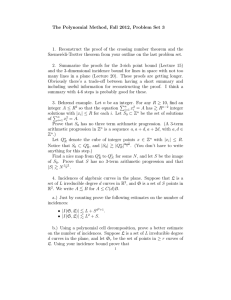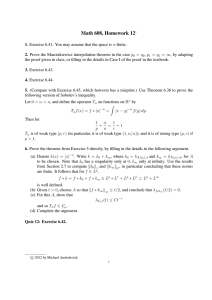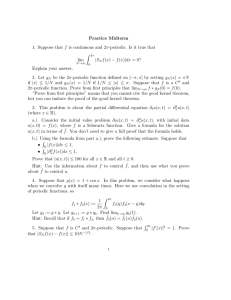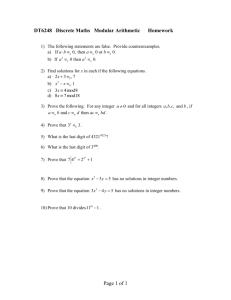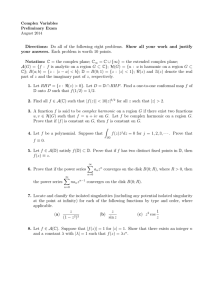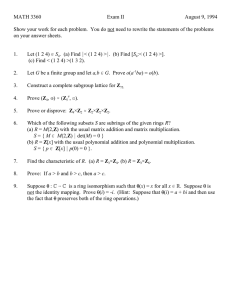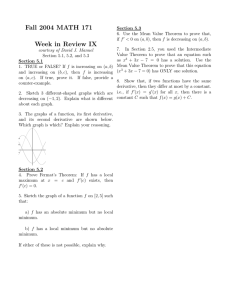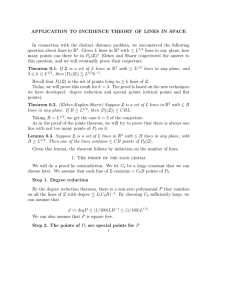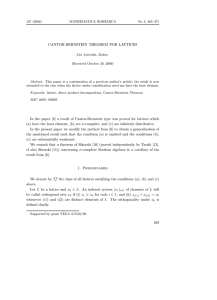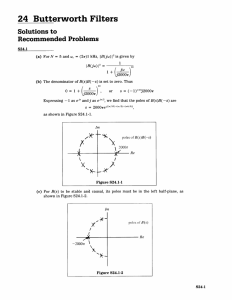The Polynomial Method, Fall 2012, Problem Set 3
advertisement
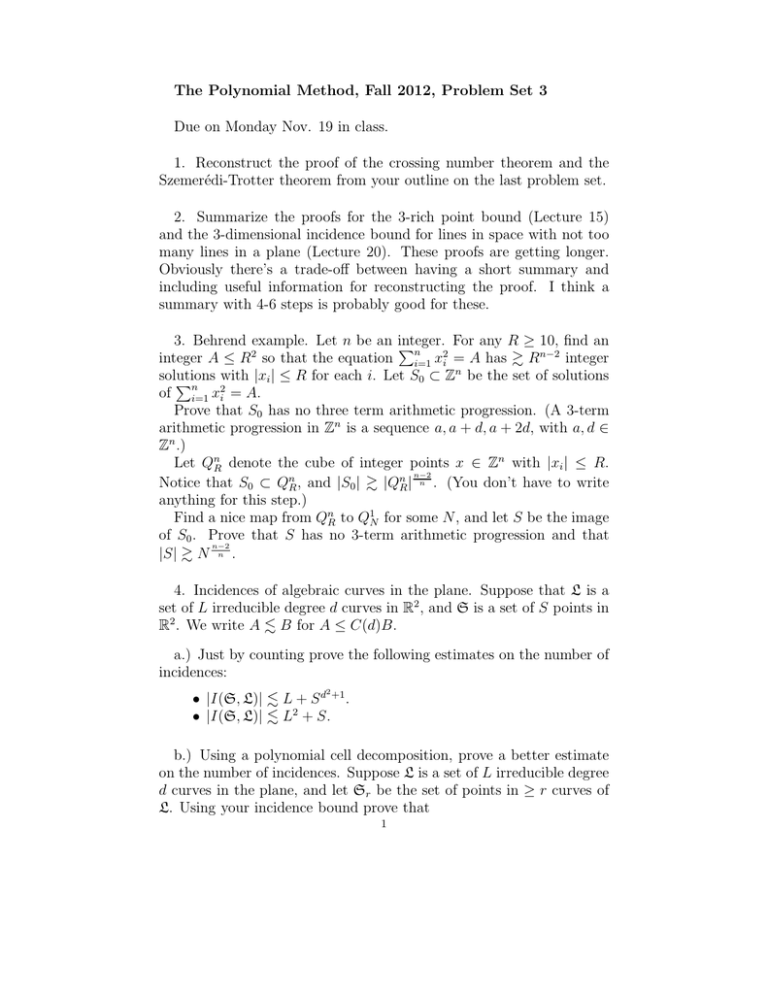
The Polynomial Method, Fall 2012, Problem Set 3 Due on Monday Nov. 19 in class. 1. Reconstruct the proof of the crossing number theorem and the Szemerédi-Trotter theorem from your outline on the last problem set. 2. Summarize the proofs for the 3-rich point bound (Lecture 15) and the 3-dimensional incidence bound for lines in space with not too many lines in a plane (Lecture 20). These proofs are getting longer. Obviously there’s a trade-off between having a short summary and including useful information for reconstructing the proof. I think a summary with 4-6 steps is probably good for these. 3. Behrend example. Let n be an integer. 10, find an Pn 2 For any R ≥ n−2 2 integer A ≤ R so that the equation i=1 xi = A has & R integer n solutions with |x | ≤ R for each i. Let S ⊂ Z be the set of solutions i 0 P of ni=1 x2i = A. Prove that S0 has no three term arithmetic progression. (A 3-term arithmetic progression in Zn is a sequence a, a + d, a + 2d, with a, d ∈ Zn .) Let QnR denote the cube of integer points x ∈ Zn with |xi | ≤ R. n−2 Notice that S0 ⊂ QnR , and |S0 | & |QnR | n . (You don’t have to write anything for this step.) Find a nice map from QnR to Q1N for some N, and let S be the image of S0 . Prove that S has no 3-term arithmetic progression and that n−2 |S| & N n . 4. Incidences of algebraic curves in the plane. Suppose that L is a set of L irreducible degree d curves in R2 , and S is a set of S points in R2 . We write A . B for A ≤ C(d)B. a.) Just by counting prove the following estimates on the number of incidences: 2 • |I(S, L)| . L + S d +1 . • |I(S, L)| . L2 + S. b.) Using a polynomial cell decomposition, prove a better estimate on the number of incidences. Suppose L is a set of L irreducible degree d curves in the plane, and let Sr be the set of points in ≥ r curves of L. Using your incidence bound prove that 1 2 1 |Sr | . L2 r −2− d2 + Lr −1 . c.) (optional) What’s the best example you can find with d = 2? Remarks. This theorem was first proven by Pach and Sharir using the crossing number theorem. 5. Suppose that L is a set of N 2 lines in R3 , with ≤ N lines in any plane. Suppose that S is a set of points containing at least N points on each line of L. Prove that |S| & N 3 .
